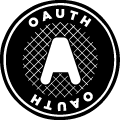 The JWS Unencoded Payload Option specification is now RFC 7797 — an IETF standard. The abstract describes the specification as:
The JWS Unencoded Payload Option specification is now RFC 7797 — an IETF standard. The abstract describes the specification as:
JSON Web Signature (JWS) represents the payload of a JWS as a base64url-encoded value and uses this value in the JWS Signature computation. While this enables arbitrary payloads to be integrity protected, some have described use cases in which the base64url encoding is unnecessary and/or an impediment to adoption, especially when the payload is large and/or detached. This specification defines a means of accommodating these use cases by defining an option to change the JWS Signing Input computation to not base64url-encode the payload. This option is intended to broaden the set of use cases for which the use of JWS is a good fit.
This specification updates RFC 7519 by stating that JSON Web Tokens (JWTs) MUST NOT use the unencoded payload option defined by this specification.
This option is used by including the header parameters "b64":false and "crit":["b64"]. JWTs never use this option.


